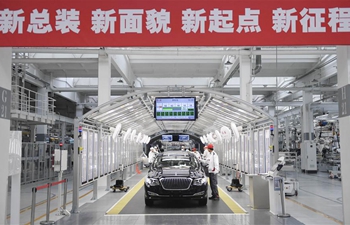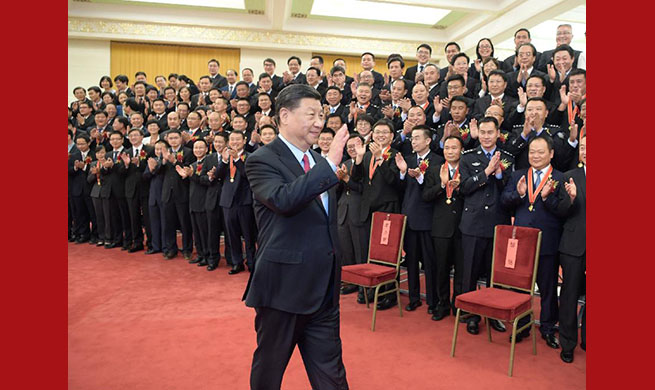BRUSSELS, June 26 (Xinhua) -- The economic problems of the United States are caused by its own system run largely by big American corporations to boost their share prices rather than China, Robert Reich, former secretary of labor in the Clinton administer, has written in The Guardian newspaper.
In an Opinion entitled "Forget China - it's America's own economic system that's broken," Reich, currently a professor of public policy at the University of California at Berkeley, wrote that Chinese and American systems "are fundamentally different."
"The American economic system is focused on maximizing shareholder returns. And it's achieving that goal: on Friday, the S&P 500 notched a new all-time high. But average Americans have seen no significant gains in their incomes for four decades, adjusted for inflation," he wrote.
"China's economic system, by contrast, is focused on maximizing China. And it's achieving that goal. Forty years ago China was still backward and agrarian. Today it's the world's second-largest economy, home to the world's biggest auto industry and some of the world's most powerful technology companies. Over the last four decades, hundreds of millions of Chinese people have been lifted out of poverty," it reads.
Hailing China's state-owned enterprises, usually a thorn through the spectacles of the Western capitalism, Reich wrote the Chinese SOEs "balance the ups and downs of the economy, spending more when private companies are reluctant to do so. They're also engines of economic growth making the capital-intensive investments China needs to prosper, including investments in leading-edge technologies."
On the other hand, at the core of the American system are 500 giant companies which "have no particular allegiance to America. Their only allegiance and responsibility is to their shareholders."
"They'll do whatever is necessary to get their share prices as high as possible," Reich wrote, adding "American system relies on taxes, subsidies and regulations to coax corporations to act in the interest of the American public. But these levers have proven weak relative to the overriding corporate goal of maximizing shareholder returns."
In addition, "most Americans have little or no influence on public policy," he wrote, citing conclusions from professors Martin Gilens of Princeton and Benjamin Page of Northwestern, who analyzed 1,799 policy issues before Congress and found that "the preferences of the average American appear to have only a minuscule, near-zero, statistically non-significant impact upon public policy."
"Instead of trying to get China to change, we should lessen the dominance of big American corporations over American policy," Reich concluded.
"China isn't the reason half of America hasn't had a raise in four decades. The simple fact is Americans cannot thrive within a system run largely by big American corporations, organized to boost their share prices but not boost Americans."













